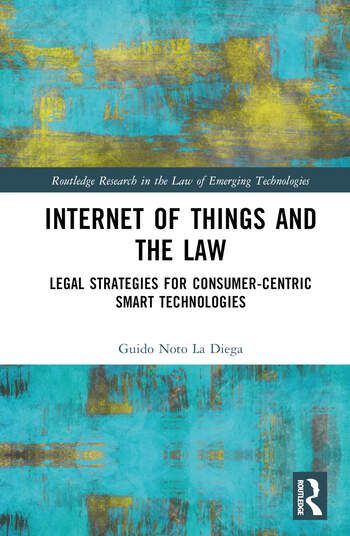We will be closed from 5pm Thursday 17th April for the Easter Bank Holidays, re-opening at 8.30am on Tuesday 22nd April. Any orders placed during this period will be processed when we re-open.

TheInternet of Things and the Law: Legal Strategies for Consumer-Centric Smart Technologies is the most comprehensive and up-to-date analysis of the legal issues in the Internet of Things (IoT).
For decades, the decreasing importance of tangible wealth and power – and the corresponding increasing significance of their disembodied counterparts – has been the subject of much legal analysis. For some time now, legal scholars have grappled with how laws drafted for tangible property and pre-digital ‘offline’ technologies can cope with dematerialisation, digitalisation, and the internet. As dematerialisation continues, this book aims to illuminate the opposite movement: re-materialisation, namely the return of data, knowledge, and power within a physical ‘smart’ world. This move frames the book’s central question: can the law steer re-materialisation in a human-centric and societally beneficial direction?
To answer it, the book focuses on the IoT, the socio-technological phenomenon that is primarily responsible for this shift. After a thorough analysis of how existing laws can be interpreted to empower IoT end-users, Noto La Diega leaves us with the fundamental question of what happens when the law fails us and concludes with a call for collective resistance against ‘smart’ capitalism.